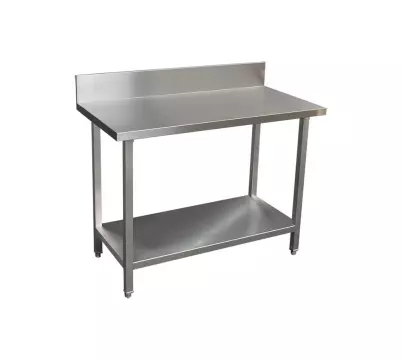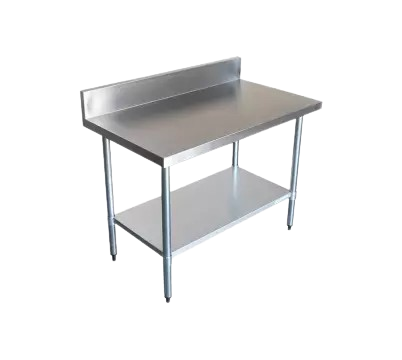
Maintaining the Shine: Expert Cleaning and Maintenance Tips for Stainless Steel Benches

Introduction
Stainless steel benches are a popular choice in commercial kitchens due to their durability, hygiene, and sleek appearance. However, to maintain their shine and prolong their lifespan, regular cleaning and maintenance are essential. In this article, we will provide expert tips on how to clean and maintain stainless steel benches effectively.
Importance of Stainless Steel Benches in Commercial Kitchens
Stainless steel benches play a crucial role braycostainless.co.nz in commercial kitchens for several reasons:
Advantages of Stainless Steel Benches
Stainless steel benches offer numerous advantages over other materials commonly used in kitchen countertops:
Applications of Stainless Steel Benches
Stainless steel benches find applications beyond commercial kitchens:
Maintenance Tips for Stainless Steel Benches
To maintain the shine and longevity of stainless steel benches, follow these expert cleaning and maintenance tips:
1. Regular Cleaning
To prevent the buildup of Brayco New Zealand dirt, grime, and fingerprints, clean stainless steel benches regularly using a soft cloth or sponge and a mild detergent. Avoid abrasive cleaners or scrubbing pads that can scratch the surface.
2. Proper Drying
After cleaning, ensure the stainless steel benches are thoroughly dried to prevent water spots or mineral deposits from forming. Use a soft cloth or towel to dry the surface completely.
3. Removing Stubborn Stains
For stubborn stains or grease marks, apply a paste made of baking soda and water onto the affected area. Let it sit for a few minutes before gently scrubbing with a non-abrasive sponge. Rinse thoroughly and dry.
4. Avoid Harsh Chemicals
Avoid using harsh chemicals such as bleach or ammonia-based cleaners on stainless steel benches as they can damage the surface and cause discoloration. Stick to mild detergents specifically formulated for stainless steel.
5. Preventing Scratches
To prevent scratches, avoid using abrasive materials or sharp objects directly on the stainless steel surface. Always use cutting boards, trivets, or silicone mats when placing hot pans or utensils on the benchtop.
6. Polishing for Extra Shine
For an extra shine, use a stainless steel polish specifically designed for food-grade surfaces. Apply a small amount onto a soft cloth and gently buff the surface in circular motions.
FAQs
Q: How often should I clean my stainless steel benches? A: Stainless steel benches should be cleaned regularly, ideally after each use. This ensures that dirt, grime, and stains do not accumulate over time.
Q: Can I use steel wool to clean stubborn stains on stainless steel benches? A: No, using steel wool or abrasive scrubbing pads can scratch the surface of stainless steel. Stick to non-abrasive sponges or cloths for cleaning.
Q: Are there any specific cleaning products I should avoid using on stainless steel benches? A: Yes, avoid using bleach or ammonia-based cleaners as they can damage the surface and cause discoloration. Stick to mild detergents specifically formulated for stainless steel.
Q: Can I use vinegar to clean my stainless steel benches? A: While vinegar is a natural cleaner, it is acidic and can potentially damage the surface of stainless steel. It is best to stick to mild detergents or specialized stainless steel cleaners.
Q: How do I remove water spots from my stainless steel benchtop? A: Water spots can be removed by thoroughly drying the surface with a soft cloth or towel. If the spots persist, a mixture of equal parts vinegar and water can be used as a gentle cleaning solution.
Q: Can I place hot pans directly on my stainless steel benchtop? A: Yes, stainless steel is heat resistant and can withstand direct contact with hot pans without warping or discoloration. However, it is advisable to use trivets or silicone mats to prevent scratches.
Conclusion
Proper cleaning and maintenance are essential for maintaining the shine and longevity of stainless steel benches in commercial kitchens. By following these expert tips, you can ensure that your stainless steel benches remain hygienic, visually appealing, and durable for years to come. Remember to clean regularly, avoid harsh chemicals, prevent scratches, and consider using a stainless steel polish for that extra shine. With proper care, your stainless steel benches will continue to be a valuable asset in your kitchen.